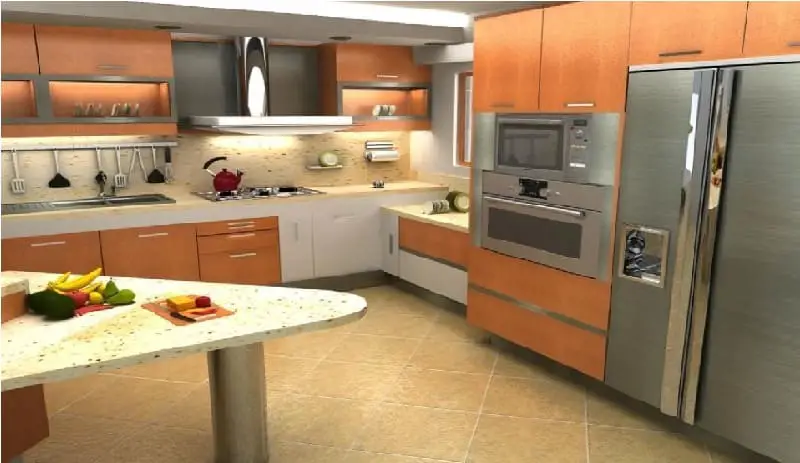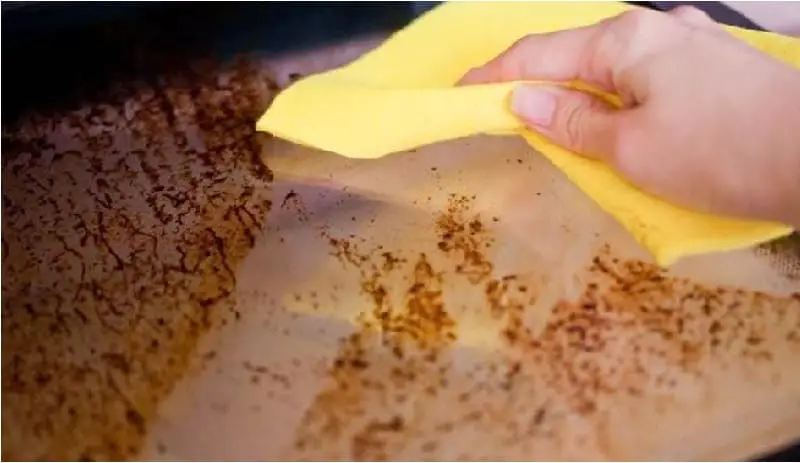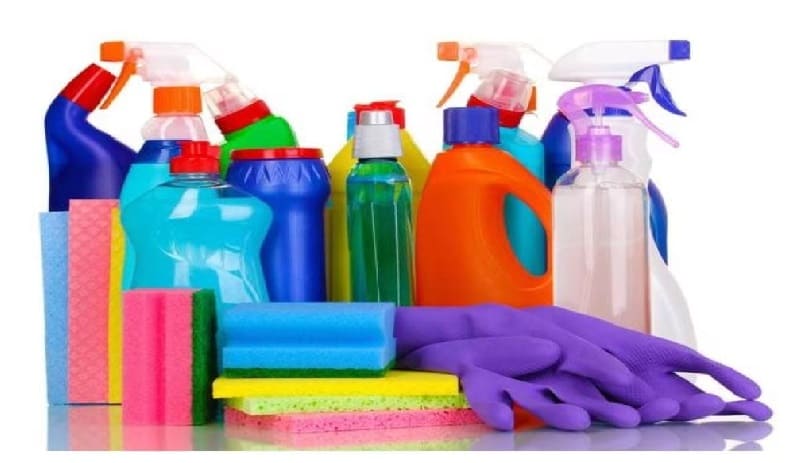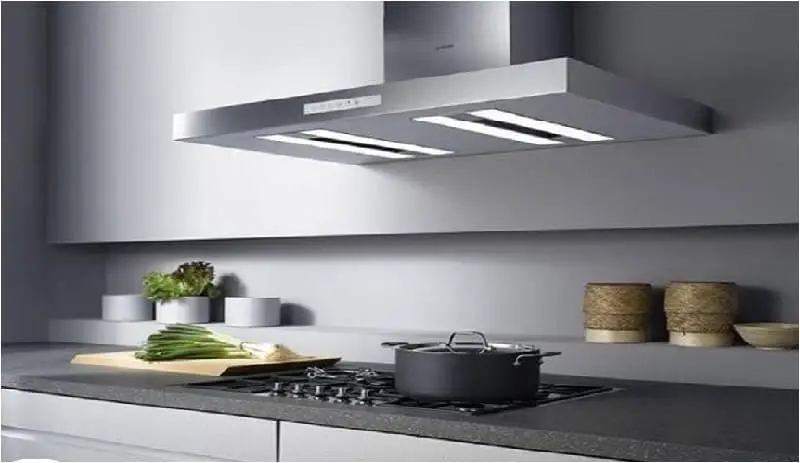The kitchen is one of the most important areas in any home. It is the place where meals are prepared, food is stored and other food-related activities take place. Therefore, it is essential to keep kitchen surfaces clean to ensure the health and safety of all family members.
In this article you will find several ways on how to remove grease from kitchen surfaces following our recommendations.

Cleaning kitchen surfaces is important for several reasons. First, it helps prevent the spread of disease. If kitchen surfaces are not clean, they can accumulate germs and bacteria that can cause illness. Second, cleaning kitchen surfaces helps prevent cross-contamination. This refers to the transfer of germs and bacteria from one surface to another, such as from raw meat to fruits and vegetables.
In addition to health and safety, the cleanliness of kitchen surfaces is also important to the appearance and function of the kitchen. If kitchen surfaces are not clean, they can accumulate grease and dirt, which can cause damage to appliances and cookware. It can also give an unpleasant impression to visitors and can affect the ambiance of the kitchen.
To keep kitchen surfaces clean, daily cleaning is essential. This includes cleaning the countertops, stove, oven, refrigerator, dishwasher and other appliances. It is also important to clean kitchen utensils, such as knives, forks and spoons. In addition, it is advisable to use appropriate cleaning products and follow the cleaning instructions of the manufacturers of the appliances and kitchen utensils.
In conclusion, keeping kitchen surfaces clean is essential to ensure the health and safety of all family members, prevent the spread of disease, avoid cross-contamination, and keep the kitchen looking and functioning well. Daily cleaning and the use of appropriate cleaning products are essential to achieve this.
What is fat and why it is important to clean it regularly.
Fat is a liquid or solid substance composed mainly of lipids (triglycerides), is commonly found in foods of animal and vegetable origin, and can also be produced by the human body.
In the kitchen, grease accumulates on surfaces, utensils and appliances due to the cooking and preparation of fatty foods. If not cleaned regularly, grease can build up and cause cleanliness and sanitation problems.

Cleaning grease regularly is important for several reasons:
-Preventing fires: Grease buildup in the kitchen can increase the risk of fires, especially in the cooking area.
-Sanitation: Accumulated grease can harbor germs and bacteria that can cause illness.
-Maintenance: Accumulated grease can damage appliances and cookware, reducing their efficiency and useful life.
-Appearance: Accumulated grease can give an unpleasant impression to visitors and can affect the ambiance of the kitchen.
Within the steps of how to remove grease on kitchen surfaces, it is advisable to use specific cleaning products for grease and follow the cleaning instructions of the manufacturers of appliances and kitchen utensils. In addition, it is important to clean kitchen surfaces regularly and to clean kitchen utensils after use.
Different types of chemicals and methods for cleaning grease on kitchen surfaces.
There are several types of chemicals and methods for cleaning grease on kitchen surfaces. Some of the most common include:
Liquid detergents: liquid detergents are chemicals designed to clean surfaces and remove grease. They can be used on a variety of surfaces, such as countertops, appliances and cookware.

Ammonia-based cleaners: Ammonia is a highly effective chemical for cleaning grease. It can be used alone or in combination with other chemicals. However, you should be careful when using ammonia as it is a strong chemical and can be harmful to skin and eyes.
Vinegar-based cleaners: Vinegar is a natural chemical that is effective in cleaning grease. It can be used alone or in combination with other chemicals. It is advisable to dilute vinegar before use to avoid damaging surfaces.
Lemon-based cleaners: Lemon is a natural chemical that is effective in cleaning grease. It can be used alone or in combination with other chemicals. It is advisable to dilute lemon juice before use to avoid damaging surfaces.
Abrasive pastes and powders: Abrasive products, such as pastes and powders, are excellent for removing grease and food debris. However, they should be used with caution as they may scratch or damage some surfaces.
Mechanical methods: Mechanical methods, such as abrasive sponges, brushes and cloths, are excellent for cleaning grease and food debris. However, they should be used with caution as they may scratch or damage some surfaces.
It is important to follow the chemical manufacturers’ instructions and use them according to the recommendations. In addition, it is always advisable to test a small area before using any chemical on a surface to make sure it will not damage the surface.
Tips for preventing grease buildup on kitchen surfaces.
Here are some tips to prevent grease buildup on kitchen surfaces:
-Clean regularly: One of the best ways to prevent grease buildup on kitchen surfaces is to clean regularly. This includes wiping down countertops, appliances and cookware after each use.
-Use a paper towel: Use a paper towel or napkin to wipe food debris and grease from kitchen surfaces. This will help remove grease before it settles and becomes difficult to clean.
-Use a disinfectant: Use a disinfectant or disinfectant cleaner to clean kitchen surfaces regularly. This will help kill germs and bacteria that can cause odors and help grease buildup.
-Don’t cook with too much oil: It is important not to cook with too much oil as this can leave a layer of grease on cooking surfaces and utensils.
-Use a cooker hood: Use a cooker hood to help remove steam and smoke that can deposit grease on cooking surfaces.

-Avoid cooking with grease: It is important to avoid cooking with grease as this can leave a layer of grease on cooking surfaces and utensils.
-Use a grease shield: Use a grease shield to help prevent grease buildup on kitchen surfaces.
-Keep the kitchen well ventilated: Be sure to keep the kitchen well ventilated to help eliminate steam and smoke that can deposit grease on kitchen surfaces.
-Use a grease cleaner: Use a specific grease cleaner to clean kitchen surfaces. These products are designed to break down and remove grease from surfaces.
By following these tips, you can keep kitchen surfaces clean and prevent grease buildup, which will help keep the kitchen clean and free of unpleasant odors.
Final recommendations for maintaining a clean and safe kitchen.
In conclusion, keeping kitchen surfaces clean is essential to ensure a safe and healthy kitchen environment. Grease is one of the main problems in kitchens, as it can accumulate on surfaces and create an environment conducive to the proliferation of germs and bacteria.
To maintain a clean and safe kitchen, it is important to regularly clean kitchen surfaces, using appropriate chemicals and methods to remove grease. It is important to follow the tips mentioned above, such as cleaning after each use, using a paper towel or napkin to remove food and grease residues, using a disinfectant or disinfectant cleaner to kill germs and bacteria, avoiding cooking with a lot of oil, using an extractor hood, avoiding cooking with grease, using a grease protector, keeping the kitchen well ventilated and using a specific grease cleaner.
In addition, it is important to follow food hygiene and safety rules, such as washing hands before handling food, keeping food at the right temperature, and avoiding cross-contamination.
In short, keeping kitchen surfaces clean is essential to ensure a safe and healthy cooking environment. It is important to follow the above tips and adhere to food hygiene and safety standards to ensure a clean and safe kitchen environment.
